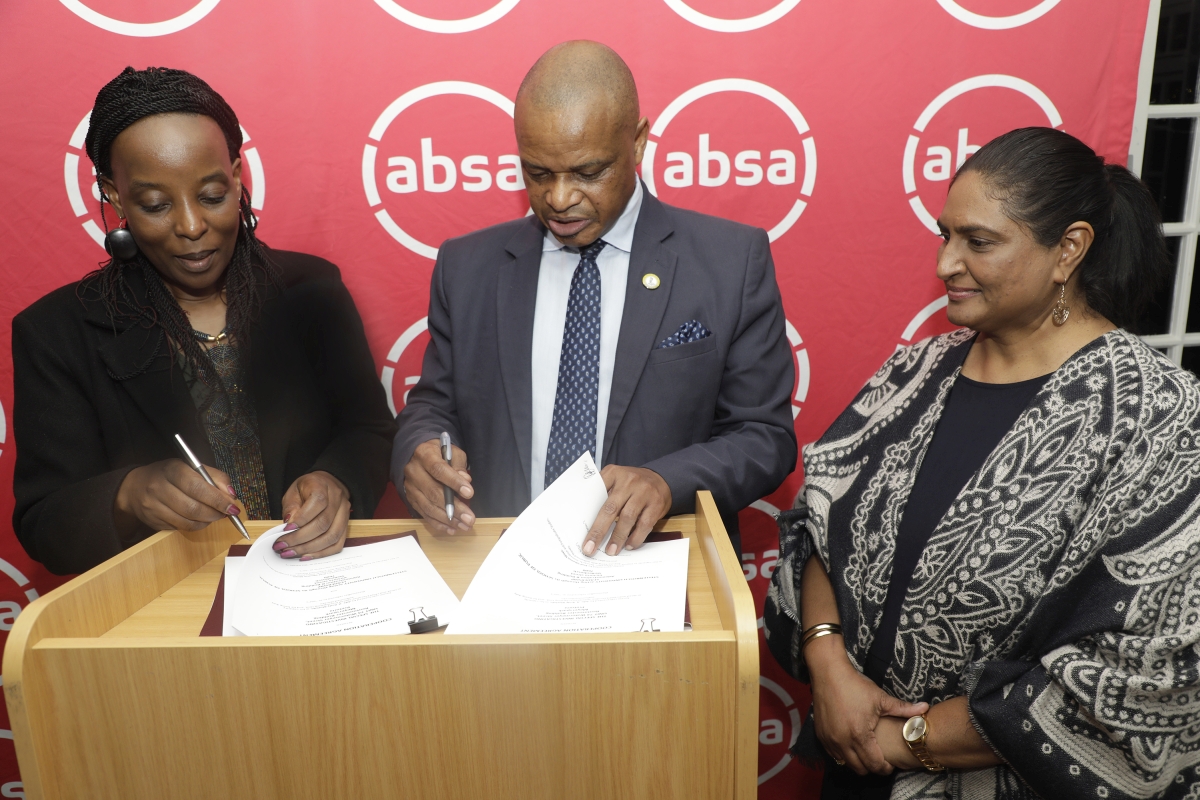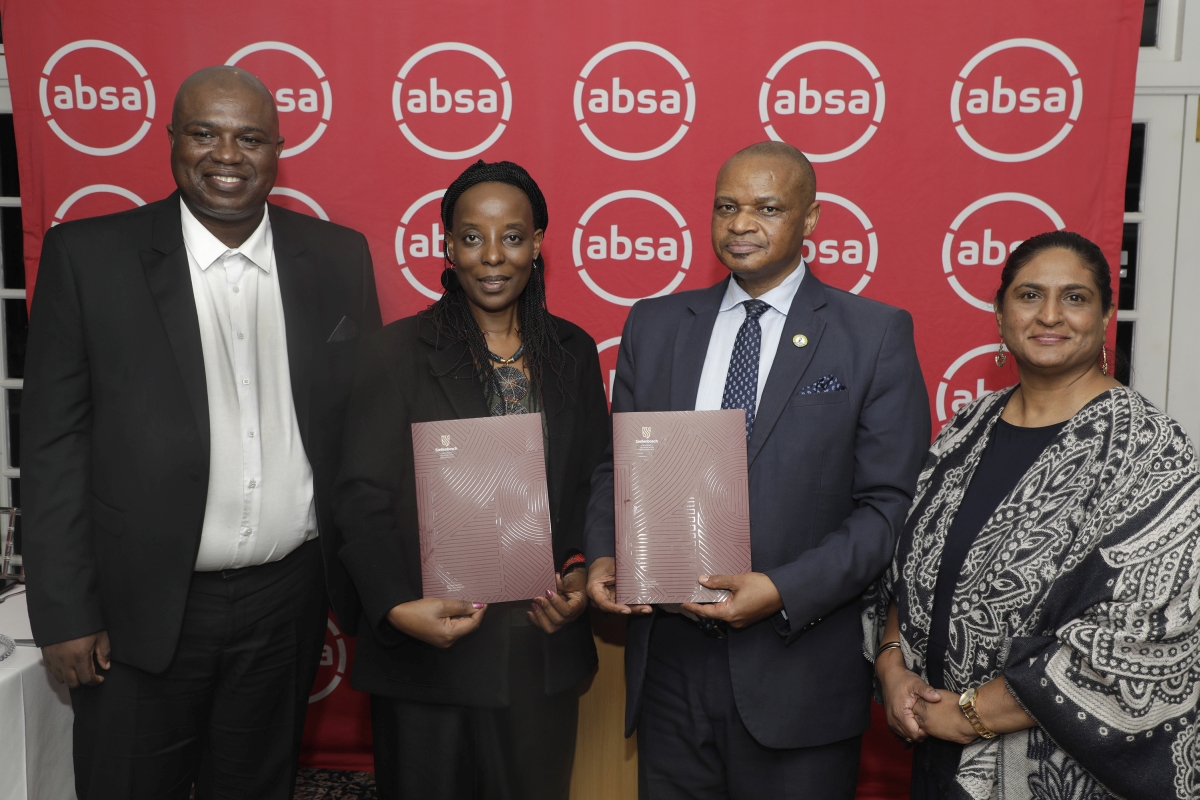Stellenbosch University (SU) has signed a Memorandum of Understanding (MOU) with the Special Investigations Unit (SIU) of South Africa to “to find new approaches and strategies in the fight against corruption.”
The MOU will focus on the areas of training and research; community engagement; capacity building; and exchange of information and expertise.
Following the commencement of a successful Gender and Corruption Symposium this week, the MOU was signed last night by Head of the SIU Advocate Andy Mothibi and Deputy-Vice-Chancellor of SU, Prof Sibusiso Moyo. Speaking at the gala dinner before the signing, Mothibi commended the organisers of the conference sharing that it was an opportunity to share best practices and share ideas on how we take into account gender in the fight against corruption.
“As leaders in the fight against corruption we should recognise the importance of addressing gender dynamics within the country, in particular, as we strengthen our fight against corruption. This means incorporating a gender perspective into all aspects of our anti-corruption efforts from prevention to investigation and to prosecution” he said.

On the importance of the MOU, Mothibi said that, “We are pleased today, having been really working together with the University of Stellenbosch, that we have reached a stage where we have signed a memorandum of understanding as an attestation that we are all committed to ensuring that we bring out everyone in the fight against corruption.”
He emphasised that the SIU is calling on all academic institutions to come on board to ensure that there is an education and awareness perspective to anti-corruption efforts. “As we sign this MOU, we would like to ensure as part of implementing national anti-corruption frameworks we really focus on education and awareness. One of the critical initiatives is awareness and education. We are really going to pick up and tap into your knowledge and expertise to ensure that we don’t leave anything to chance,” he said as he addressed the room.
Prof Moyo, who signed the MOU on behalf of the university also touched on the importance of education in ensuring impact on society and mentioned that that this is part of the SU vision. Universities have an important role to play in education, “but not education for the sake of a degree, we want to produce well-rounded students.” She explained that SU wants to ensure that when students study in the classroom they tackle real issues.
“Together we can advance society… We have great partnerships, so great opportunities to advance and do research to inform policy.”
The symposium was hosted by the Anti-Corruption Centre for Research of Stellenbosch University (ACCERUS), part of the Faculty of Economic and Management Sciences (EMS) and the brainchild of Professor Pregala Solosh Pillay, director of ACCERUS. Prof Pillay was instrumental in facilitating the MOU with the SIU on SU’s behalf.

At the symposium the keynote speakers Adv Nthabiseng Sepanya (Chairperson of the Commission for Gender Equality, South Africa) and Prof (Adv) Thulisiwe Madonsela (Chair, Centre for Social Justice, Stellenbosch University) both spoke to the need for a gendered lens when tackling corruption and focused on the often-overlooked issue of sextortion which greatly affects women and girls in society.
Adv Sepanya focused on how “women suffer corruption to a greater extent due to unequal power dynamics” and mentioned that sextortion is rarely included in the definition of corruption despite evidence that women and girls are often asked to provide sexual favours for services they should receive.”
She believes that as long as corruption exists, inequality will continue to undermine a prosperous society and thus it is important for South Africans to protect key governmental institutions.
Prof Madonsela took the conversation further and shared that we need better protection of whistleblowers and graft blockers in order to tackle corruption.
She emphasised that corruption is a global disease and not an African one and because it is sometimes viewed as such, we cannot tackle it effectively. She gave numerous examples of women who were mistreated (sometimes fired) for doing the right thing and the power imbalances that led to no consequences for the guilty parties.
The symposium was made possible by generous funding from the Friedrich Naumann Foundation, the Enhancing Accountability Programme funded by the European Union, ABSA, Good Governance Africa, LesTech, and Stellenbosch University.
Images: From left to right: Prof Zwelinzima Ndevu, Prof Sibusiso Moyo, Adv Andy Mothibi, and Prof Pregala Solosh Pillay.

